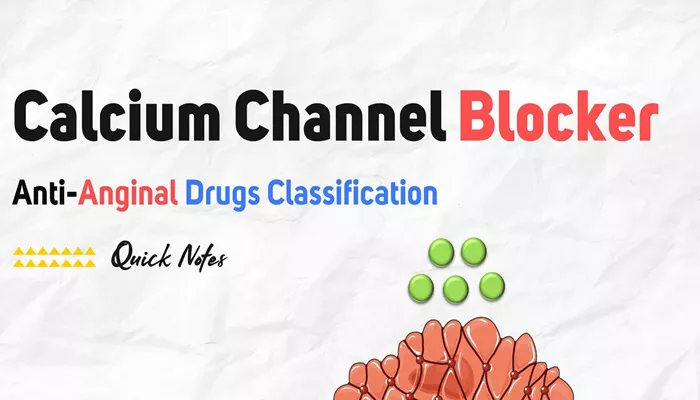Premature ventricular contractions (PVCs) are common cardiac arrhythmias characterized by early heartbeats originating from the ventricles. While many individuals with PVCs may experience no symptoms and require no treatment, others may find the condition bothersome or indicative of underlying heart issues. In such cases, medications can be employed to manage the frequency and severity of PVCs. This article explores the various medications available for treating PVCs, their mechanisms of action, indications, and potential side effects.
What Is Premature Ventricular Contractions?
PVCs occur when the ventricles contract prematurely, disrupting the normal heart rhythm. They can be triggered by various factors, including stress, caffeine, alcohol, and certain medications. PVCs can be classified into single PVCs, couplets (two consecutive PVCs), and triplets (three consecutive PVCs). While occasional PVCs are generally considered benign, frequent or symptomatic PVCs may require medical intervention.
When Are Medications Necessary?
The necessity for medication depends on several factors:
Symptomatic PVCs: Patients who experience palpitations, dizziness, or chest discomfort may require treatment.
Underlying Heart Disease: Individuals with structural heart disease or a history of heart failure may need medications to prevent complications.
Frequency of PVCs: Frequent PVCs, especially those exceeding 10% of total heartbeats, may warrant treatment to reduce the risk of developing cardiomyopathy.
Classes of Medications for PVCs
The primary classes of medications used to treat PVCs include:
1. Beta-Blockers
Beta-blockers are commonly prescribed for managing PVCs, particularly in patients with underlying heart conditions. They work by blocking the effects of adrenaline on the heart, which helps to reduce heart rate and stabilize the heart’s electrical activity.
SEE ALSO: How Do Beta Blockers Help Arrhythmia?
Commonly Used Beta-Blockers:
Metoprolol: Often used for its efficacy in reducing PVC frequency and improving symptoms.
Atenolol: Another effective option that helps manage heart rate and rhythm.
Carvedilol: Particularly beneficial for patients with heart failure, as it improves overall heart function.
Indications: Beta-blockers are indicated for patients with symptomatic PVCs, especially when associated with anxiety or stress.
Side Effects: Common side effects include fatigue, dizziness, and bradycardia (slow heart rate). In some cases, they may exacerbate asthma symptoms.
2. Calcium Channel Blockers
Calcium channel blockers are another class of medications that can help manage PVCs. They work by inhibiting calcium entry into cardiac and smooth muscle cells, leading to a decrease in heart contractility and heart rate.
Commonly Used Calcium Channel Blockers:
Diltiazem: Effective in controlling heart rate and reducing PVC frequency.
Verapamil: Similar to diltiazem, it helps manage PVCs by stabilizing heart rhythm.
Indications: These medications are often used in patients who cannot tolerate beta-blockers or have specific contraindications.
Side Effects: Potential side effects include constipation, dizziness, and peripheral edema (swelling of the legs).
3. Antiarrhythmic Medications
Antiarrhythmic drugs are specifically designed to treat irregular heart rhythms. They are usually reserved for patients with frequent or symptomatic PVCs that do not respond to beta-blockers or calcium channel blockers.
Commonly Used Antiarrhythmics:
Amiodarone: A potent antiarrhythmic that can be effective in controlling PVCs, especially in patients with structural heart disease.
Flecainide: Often used for patients without structural heart disease; it helps stabilize the heart’s electrical activity.
Indications: Antiarrhythmics are indicated for patients with severe symptoms or those at risk for developing cardiomyopathy due to high PVC frequency.
Side Effects: These medications may have significant side effects, including thyroid dysfunction (amiodarone), dizziness, and potential proarrhythmia (the risk of causing new arrhythmias).
Lifestyle Modifications And Non-Pharmacological Approaches
In addition to medications, lifestyle modifications can play a crucial role in managing PVCs. Patients are often advised to:
Reduce Stimulants: Limiting caffeine, nicotine, and alcohol can help decrease PVC frequency.
Manage Stress: Techniques such as yoga, meditation, and deep breathing exercises can reduce anxiety and stress, which may trigger PVCs.
Maintain Electrolyte Balance: Ensuring adequate levels of potassium and magnesium can help stabilize heart rhythm.
Catheter Ablation for PVCs
For patients with refractory PVCs who do not respond to medications, catheter ablation may be considered. This minimally invasive procedure involves threading catheters through blood vessels to the heart, where radiofrequency energy is used to destroy the small area of heart tissue responsible for the PVCs.
Indications: Catheter ablation is indicated for patients with frequent PVCs causing significant symptoms or those with PVC-induced cardiomyopathy.
Success Rates: The procedure has a high success rate, with many patients experiencing a significant reduction in PVC frequency and improvement in symptoms.
Conclusion
Premature ventricular contractions are a common arrhythmia that can be managed effectively with medications and lifestyle modifications. Beta-blockers, calcium channel blockers, and antiarrhythmic medications are the primary pharmacological options available for treating symptomatic or frequent PVCs. While most individuals with PVCs do not require treatment, those experiencing significant symptoms or underlying heart conditions may benefit from a tailored approach that includes medications and potentially catheter ablation.

